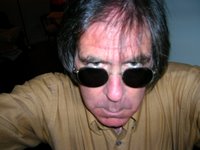
George Byron, 6th Baron Byron, is referred to simply as Byron, because it just took far too long for people to say ‘Good morning, George Byron, 6th Baron Byron’ when they met him on the street. Byron was more than a wealthy dilettante who went around acting smug all the time in the late 18th and early 19th centuries. No, he was a wealthy dilettante with a social conscience. On the 27th in 1812, he assumed his seat in the House of Lords and gave his first speech in that body. He defended the members of the Luddite movement from his home county of Nottinghamshire who, in response to the increasing industrialization in England and, feeling that their jobs were threatened, went around ransacking factories and occasionally burning those factories to the ground. It’s my guess that Byron did not own any of the factories.
 On the 1st in 1912, Albert Berry made the first parachute jump from a moving airplane. I wonder why this entry appears, in several sources, as it does. At the beginning of the 20th century, were there hordes of people making parachute jumps from stationary airplanes? That strikes me as being just a bit silly, but hey, who am I to judge?
On the 1st in 1912, Albert Berry made the first parachute jump from a moving airplane. I wonder why this entry appears, in several sources, as it does. At the beginning of the 20th century, were there hordes of people making parachute jumps from stationary airplanes? That strikes me as being just a bit silly, but hey, who am I to judge?





